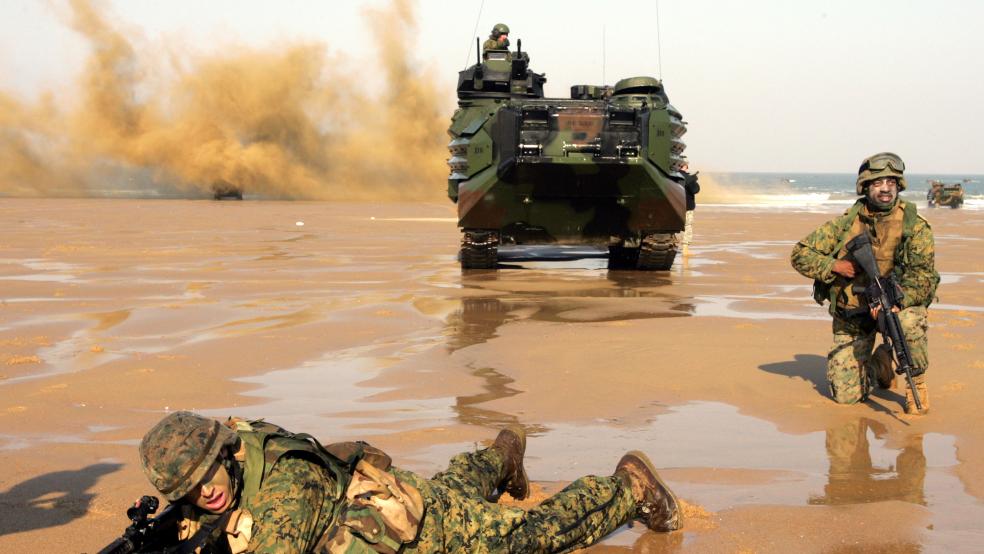President Trump had long complained about the cost of keeping U.S. troops in foreign countries and expressed a desire for allies to more fully share the financial burden. In a speech at the Pentagon in January, Trump warned, “Wealthy, wealthy countries that we’re protecting are all under notice. We cannot be the fools for others.”
Although foreign policy experts have questioned his emphasis on payments for protection, arguing that overseas deployments provide considerable military, political and economic benefits for the U.S., Trump’s efforts are having a real effect. On Friday, South Korea agreed to pay 8 percent more to cover the cost of U.S. troop deployments in the country, bumping this year’s total to $925 million. And Bloomberg’s Nick Wadhams and Jennifer Jacobs report that the Trump administration is also pushing other allies, including Germany and Japan, to increase their payments for hosting U.S. troops.
Trump is reportedly looking for more than just a bump in payments from U.S. allies. Wadhams and Jacobs say the White House is asking host nations to pay the full price of deploying U.S. troops in their countries – plus another 50 percent for the privilege. “In some cases,” the reporters say, “nations hosting American forces could be asked to pay five to six times as much as they do now under the ‘Cost Plus 50’ formula.”
The U.S. could encounter challenges from allies who provide valuable bases that extend U.S. military reach, Wadhams and Jacobs say, and the White House may ease up on its demands if allies begin to question the need for U.S. troops on their soil. But it’s clear that the Trump administration has changed the conversation on foreign troop deployments, and that allies will now be expected to pay more than they have in the past.




